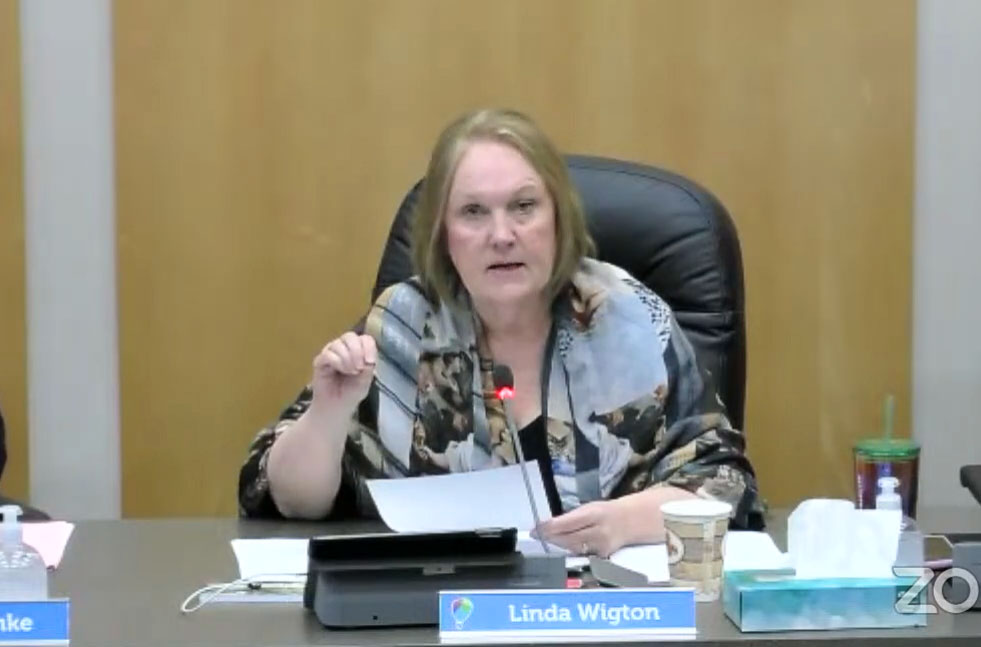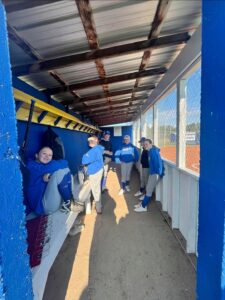The Board of Trustees for Northern Gateway Public Schools discussed the upcoming election at a recent board meeting. The Advocacy Committee, whose purpose is to develop, support and monitor the Trustee Board’s advocacy plan, provided an update on where things are right now.
Trustee Linda Wigton spoke on the committee’s behalf. “We are asking that board members in various jurisdictions contact their local candidates and set up a meeting with them. We’ve provided two-minute pitches and further detail as well,” she explained. Board-approved materials would be provided so that each board member could properly articulate the board’s priorities.
Wigton suggested that the meetings could happen at the discretion of each member rather than providing concrete direction on how to go about it. She said that members could have meetings in a cohort, with people joining them. The purpose of the meeting is ultimately to make sure that each candidate understands what Northern Gateway Public Schools is advocating for on behalf of students and staff.
“We discussed at what point would we, the board, meet with our MLAs post-election. We could set up some kind of meeting where we would bring all the MLAs in and have a meeting with the board, whether formal or informal; however, we as a board decide that.” She conveyed the importance of meeting with candidates before and after the provincial election, slated for May 29. “It was really important for the committee to be really clear, and non-partisan, with all of our candidates what our priorities are,” said Wigton.
The first priority slated for the handout was to meet the increased and complex needs of learners. “There are two bullets under that. (One is) the expanding mandate, in other words, we are being asked to do more and more for more people with less and less, and increased student need. The pandemic learning loss and shortage of specialized service providers in rural areas is leaving students in rural Alberta at a serious disadvantage. That’s our first message,” said Wigton.
“Our second message is that 30 percent of Alberta Health’s specialized service positions in our communities are vacant. This is leaving teaching staff to manage increasingly complex classrooms,” explained Wigton. Trustee Gerry Steinke asked about the vacancies. “When we talk about 30 percent of healthcare specialized service positions being vacant, where do we get that information from? Is that a reference to student-based specialized services that we use, or is it for all Alberta health positions in small communities?”
Superintendent Kevin Bird said the number was from an NGPS staff survey and that they were positions that specifically served their students. “That’s specific to us,” stated Bird. Trustee Steinke suggested changing the wording so that it clearly reflects that the 30 percent is specific to NGPS communities and their children.
The second priority also focused on dual credit, employment readiness and post-secondary learning opportunities for senior and rural students. “Employment readiness programs and post-secondary options must be available to rural students in their rural communities. Funding for dual credit programming should be restored,” commented Wigton.
The third item stated that NGPS supports public education that “welcomes every student.” From there, Wigton said the brochure would include examples of the priorities to round it all together. “Examples are really important, I think,” said Wigton. Specific to specialized services that help students, she pointed to speech-language, counselling and mental health support programs and providers who live, work and are accessible in rural communities.
“PUF funding (Program Unit Funding) for kindergarten has been cut, and we are seeing a change in how early learning is happening in some of our communities because of that. ParentLink, and other learning programs, help support these early learners at the preschool age and help parents in understanding the needs of early learners,” explained Wigton. “The loss of ParentLink in Whitecourt was huge,” she added. Wigton said trustees are encouraged to talk with parents of young children about support programs and encourage advocacy for early learner supports with both municipalities and the government.
The Advocacy Committee looked at programs that have been affected by changes at the provincial level. “We feel as a committee that although there may have been some issues with dual credit, and certainly even with PUF funding, they (provincial government) did throw the baby out with the bath water. They really missed the mark (with) getting rid of these two programs, and it really impacted our rural students terribly,” explained Wigton. “The government needs to look at that, and we need to look at how to support our students with getting post-secondary training in their communities.”
She said increasing satellite learning opportunities, including post-secondary training options in rural communities, is an important advocacy focus. “We all know when we look around in our communities; we know students in our communities that are not moving into post-secondary because the cost is prohibitive for them to move into the city or to move away from home. It’s a huge disadvantage, and we need to make our elected officials aware of that.” The Advocacy Committee will continue working on the document before seeking board approval and fanning it out to members.








More Stories
Community spirit shines at large-scale youth baseball event
Birthday party chaos sung beautifully by Pumpjack Players’ youth in spring musical
Gearing up for another season of cars, cruising and camaraderie